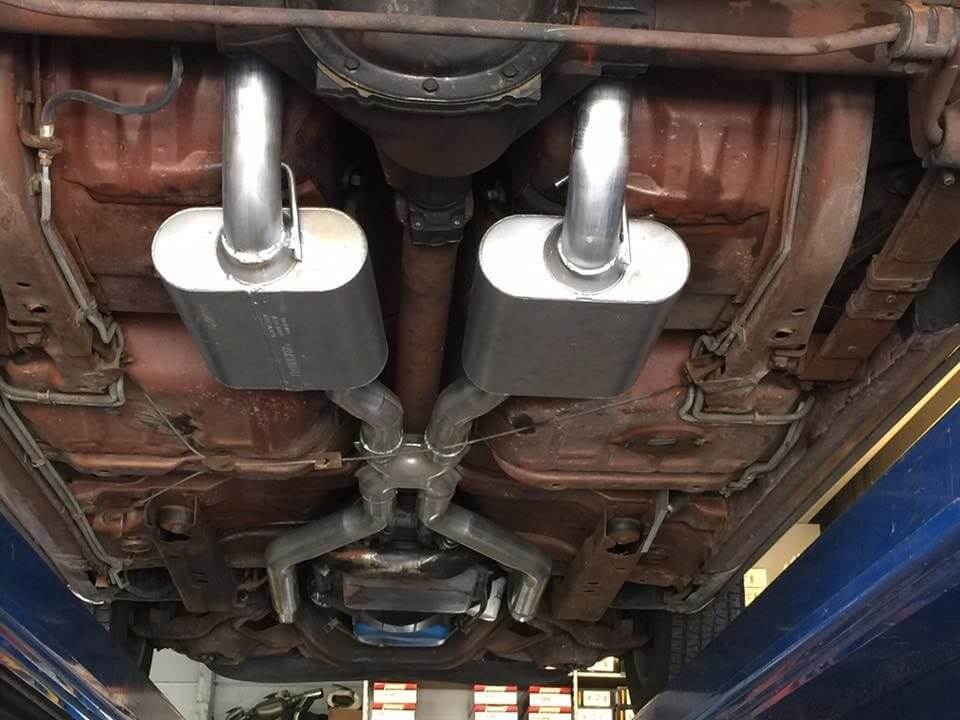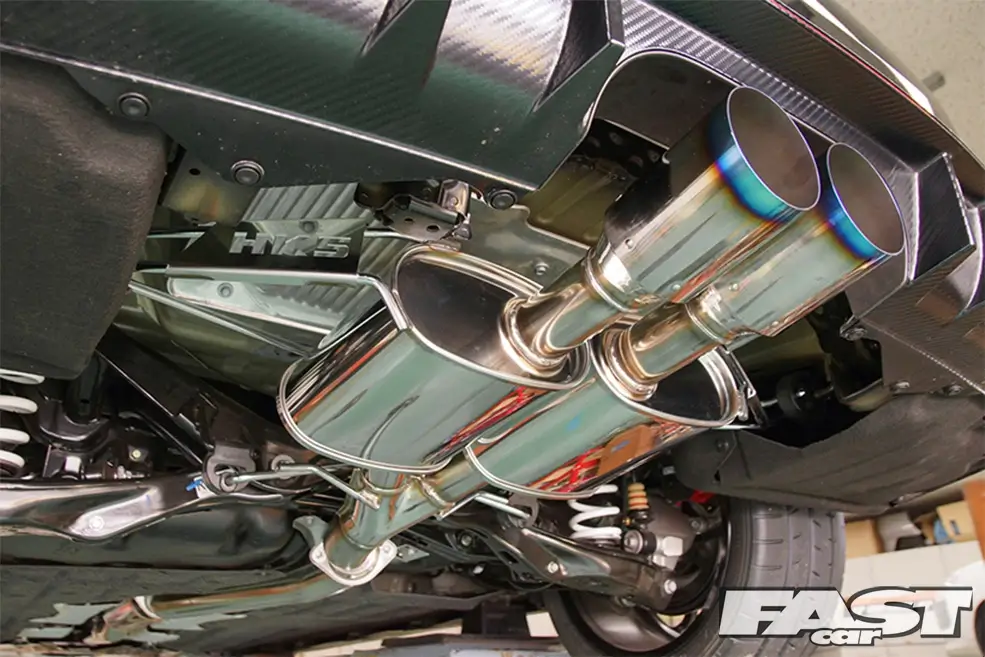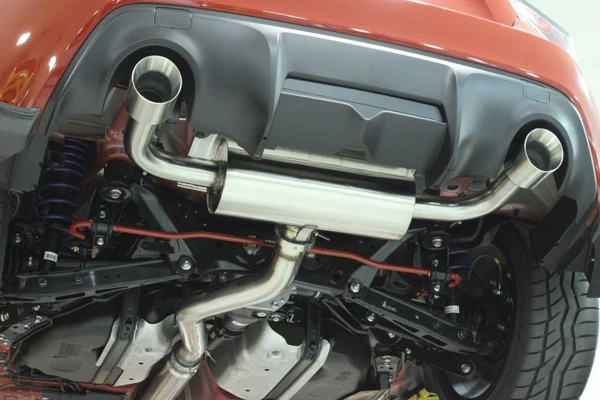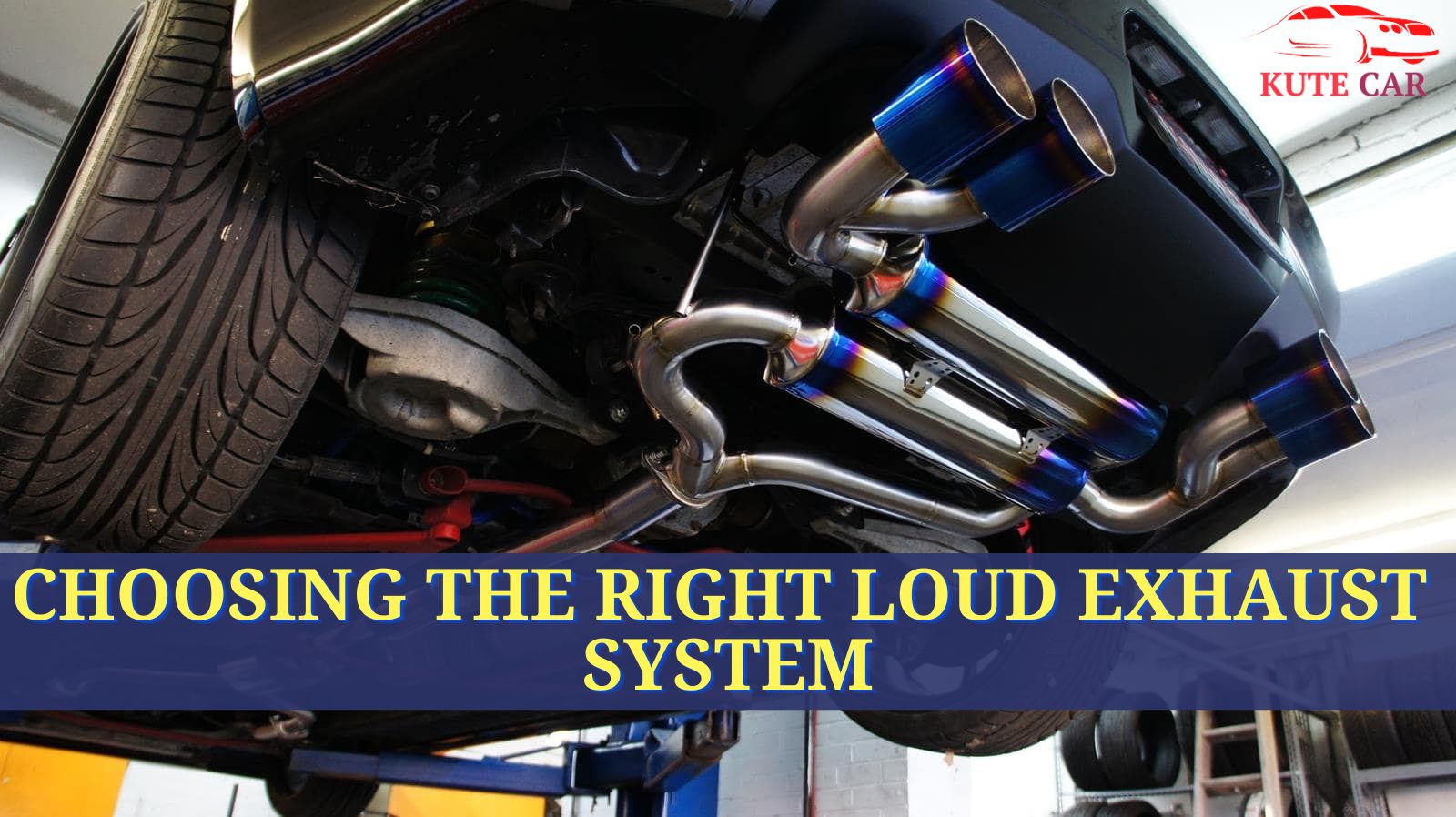Are you keen to know about the loud exhaust system? So this blog is for you. Installing a loud exhaust system can be an excellent way to increase your vehicle’s performance, increase torque, and improve gas mileage with an impressive sound. Keep reading this article to know all functioning and details about the loud exhaust system.
What is Loud Exhaust Systems?
A loud exhaust system in a vehicle is an aftermarket transformation that improves the volume of the exhaust noise. Some people prefer exhaust systems for the sporty or aggressive sound they produce. After that, it may be installed to increase horsepower and performance.
It can be achieved through several ways, such as installing larger diameter exhaust pipes, terminating mufflers or resonators, or adding a “straight pipe” exhaust system.
Why do People Install Loud Exhaust Systems?
Several people use loud exhaust systems for muscle cars for various reasons, such as they produce sporty or aggressive sounds on a vehicle. Installing exhaust systems is to increase horsepower and performance.

Different Types of Loud Exhaust Systems
some of the most common loud exhaust system for off-road trucks include:
1) Cat-back exhaust systems
Cat-back exhaust systems replace the portion of the exhaust system that runs from the catalytic converter to the muffler. It boosts exhaust flow and enhances the sound of the engine.
2) Axle-back exhaust system
Axle-back exhaust system replaces the section of the exhaust system from the rear axle to the vehicle and usually consists of the muffler, tailpipe, and tips. It improves the sound and performance of the car.
3) Turbo-back exhaust systems
Turbo-back exhaust systems replace the whole exhaust system, from the turbocharger to the tailpipe. It improves the sound of the engine and increases the exhaust flow.
4) Header-back exhaust systems
Header-back exhaust systems replace the entire exhaust system, from the exhaust header to the tailpipe. The immediate benefit of a header-back exhaust system is fast exhaust flow. It can lead to a gain in horsepower and torque.
5) Straight pipe exhaust systems:
Straight pipe exhaust systems reduce backpressure and allow for improved exhaust flow. It can result in an increase in horsepower and torque.
What makes an Exhaust System Loud?
Some of the changes that can make an exhaust system loud include:
- Increasing the diameter of the exhaust pipes: Bigger diameter pipes qualify for a more unrestricted flow of exhaust gasses, which results in a louder noise.
- Removing the muffler or resonator: Mufflers and resonators decrease the volume of exhaust noise.
- Adding a straight pipe exhaust system: Allows exhaust gasses to escape the engine more willingly, resulting in a louder noise.
- Adjusting the exhaust valves: Many stylish cars come equipped with exhaust valves that can open and close to manage the number of exhaust gasses.
- Adding a turbocharger or supercharger: Increases the amount of power the engine can produce, resulting in louder exhaust noise.
Does Loud Exhaust affect the Engine?
A loud exhaust system for high horsepower engines, by itself, will not instantly affect the engine. An exhaust system can impact the engine’s emissions control system. Because the emissions control system works in conjunction with the factory exhaust system. If the exhaust system is changed, it can disrupt the balance of the emissions control system and potentially force it to malfunction.

However, making changes to the exhaust system that increases its volume, such as increasing the diameter of the exhaust pipes or removing mufflers, Specifically, these changes can cause the engine to run hotter, decrease performance, and enhance wear.
Furthermore, if the exhaust system is loud enough, it can cause back pressure in the engine. Due to this, it can affect the engine performance, decrease power and torque and increase emissions.
Does Loud Exhaust affect Mileage?
Modifying the exhaust system to make it louder can affect a vehicle’s fuel mileage. Using a loud exhaust system can increase the engine’s backpressure. It can make the engine work harder to force exhaust gasses out. As a result, the engine uses more fuel to produce the same part of power.

Further, It can also affect the aerodynamics of the vehicle, which can also lead to a decrease in fuel mileage, reduce the vehicle’s speed, and make the engine work harder. The effect on fuel mileage from a loud exhaust system may depend on factors such as the type of vehicle, the driving conditions, and the modifications made to the exhaust system.
What Exhaust gives the Best Sound?
A cat-back loud exhaust system for supercharged vehicles provides the best sound and enhances the exact sound of the engine while decreasing unwanted noise. The larger diameter pipes and the more free-flowing muffler of a cat-back exhaust system can support reducing back pressure and increasing exhaust flow. It can result in a more profound and assertive sound.

How can I Enhance the Sound of my Car Exhaust?
- Installing a high-performance exhaust manifold
- Installing a catalytic converter replacement
- Installing a performance exhaust system
- Installing a performance air intake
- Tuning the engine
- Adjusting the engine’s air/fuel ratio
- Installing a downpipe
- Replacing the factory downpipe with a high-flow downpipe
- Installing a performance camshaft
- Installing a performance exhaust header
Importance of Selecting Reputable Brands and high-quality Systems
Selecting reputable brands and high-quality exhaust systems is essential for several reasons.
- Durability: These exhaust systems use high-quality materials that will last longer and require less maintenance.
- Performance: Reputable brands can result in improved horsepower and torque.
- Safety: These systems meet safety standards and regulations.
- Warranty: Reputable brands often offer a warranty. It can provide peace of mind and protection against defects and problems.
- Sound: High-quality exhaust systems provide a sporty sound without being too loud or raspy.
- Aesthetics: High-quality systems enhance the appearance of the vehicle.
What are the Advantages of an Exhaust System?
- Reducing engine noise
- Improving engine performance
- Increasing fuel efficiency
- Improving emissions control
- Enhancing the car’s appearance and sound
- Improving vehicle handling and stability
- Protecting the environment by reducing pollutants
- Keeping the interior of the car quiet
- Adding value to the car by making it more sporty and aggressive
- Improving engine power and torque.
Conclusion
In conclusion, loud exhaust systems have become popular among car enthusiasts for their bold sound. They work by reducing back pressure and allowing exhaust gasses to exit the engine more efficiently and increase horsepower and torque. It’s also important to consider the best exhaust system that suits your requirements and choices.
FAQ Regarding The Loud Exhaust Systems
Q.1) Are loud exhaust systems legal?
The legality of loud exhaust systems differs by state and country. In some places, these systems are legal as long as they meet specific noise level restrictions.
Q.2) How can I improve the sound of my car exhaust?
Several ways to improve the sound of your car exhaust include installing a high-flow muffler, a straight pipe exhaust, a cat-back exhaust system, or a header-back exhaust system.
Q.3) What is backpressure, and how does it affect exhaust sound?
Backpressure is a part of the resistance that puts on the engine. High levels of backpressure can muffle the exhaust sound and lower engine execution.
Q.4) How does a resonator affect the sound of an exhaust system?
The loud exhaust system for high-performance sports cars can create a more aggressive and louder sound by releasing the resonator. It also increases the amount of noise that the vehicle produces.




